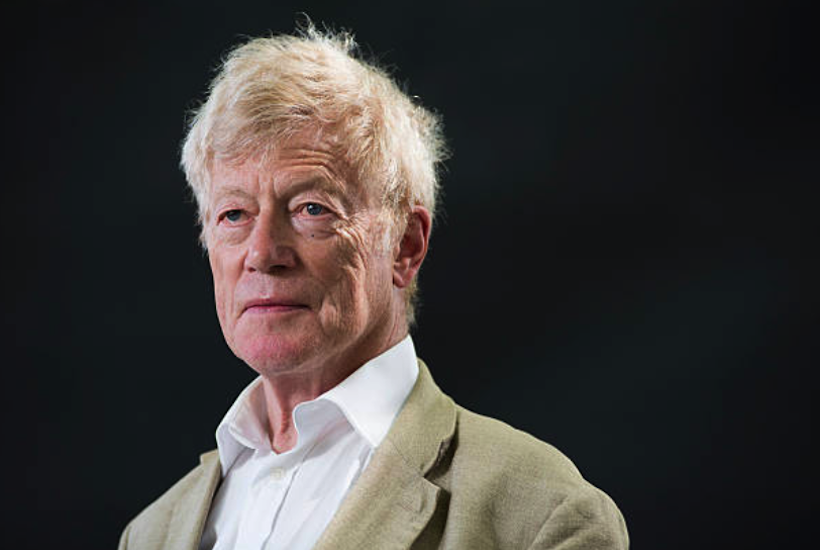Conservatives around the world will be mourning the death of Sir Roger Scruton, a towering intellect and cultural critic whose life and works exemplify a deep commitment to an intellectual tradition long since abandoned by the West’s academic and politically correct elites.
As detailed in his Times obituary Scruton came from humble beginnings and over the course of his lifetime achieved the reputation as “one of the most outspoken and provocative conservative thinkers of his generation”. Such is the power and influence of Scruton’s contributions over many years as an author, journalist and public commentator that Douglas Murray describes him as “a man who seemed bigger than his age”.
In his widely influential book, The Meaning of Conservatism Scruton stresses the importance of tradition, authority, continuity and meritocracy. A political and cultural philosophy stressing the “conviction that good things are more easily destroyed than created, and the determination to hold on to those good things in the face of politically engineered change”.
In opposition to the nanny state and big government much like Edmund Burke’s vision of little platoons, Scruton in his book Conservatism stresses the value of “the networks of familiarity and trust on which a community depends for its longevity”. Scruton also suggests ordinary people are conservative by nature; something not acknowledged by society’s intellectual elites.
An intellectual class that sees itself as “gifted with superior insight and intellect and therefore inevitably critical of whatever it is that ordinary people do by way of surviving. An intellectual class that does not identify with the way of life around it”.
Donald Trump’s election as President of the United States by Hilary Clinton’s “basket of deplorables”, Scott Morrison’s ability to win the support of the “quiet Australians” and Boris Johnson’s success attracting traditional Labor voters are proof of Scruton’s thesis.
When explaining why he became a conservative Scruton refers to his personal experience of the 1968 Paris riots where supposedly educated and privileged students turned themselves into “an unruly mob of self-indulgent middle-class hooligans”. Scruton demonstrated the conviction of his beliefs by spending time in the Czech Republic assisting Vaclav Havel and the resistance movement.
And while the conservative Prime Minister Margaret Thatcher focused on economic debates Scruton took a much wider and richer view; one that defines conservatism as “a distinct way of being human, and in every sphere of life the conservative temperament has staked its claim: in art, music literature, science and religion”.
Scruton, like the poet T S Eliot and the philosopher Michael Oakeshott. believed the purpose of education is to initiate succeeding generations into what Matthew Arnold described as “the best that has been thought and said”.
For Scruton what mattered most “is the spiritual and moral health of a community” and it’s understandable why he abhorred the destructive impact of cultural-left theory on the academy especially the impact of postmodernism and deconstructionism on music, art, literature and history.
When discussing the threats to modern conservatism Scruton identifies one of its chief enemies as political correctness and “its restraint on freedom of expression and its emphasis in everything on Western guilt”.
Scruton writes concepts like ‘thoughtcrime’, ‘Newspeak’ and ‘doublethink’ central to Orwell’s political fables 1984 and Animal Farm illustrate the destructive and totalitarian nature of political correctness; a form of language control and group think “that has since invaded intellectual life in Britain and America”.
As expected Scruton’s intellectual honesty, moral integrity and unwillingness to bow to prevailing cultural-left orthodoxies led to him being abused and attacked. Most recently when he was sacked and then reinstated as a government advisor based on a misleading and scurrilous interview by George Eaton, the deputy editor of the New Statesman.
Eaton alleged Scruton had made racist and antisemitic statements and posted on Instagram a picture drinking champagne with the caption ‘The feeling when you get right-wing racist and homophobe Roger Scruton sacked”.
I had the pleasure of speaking at an event organised by the IPA in Melbourne where I met Scruton, who was also a speaker. His contributions on the meaning and significance of conservatism are insightful, perceptive and persuasive and will endure for years to come.
Dr Kevin Donnelly is a Senior Research Fellow at the Australian Catholic University and author of A Politically Correct Dictionary and Guide (available at kevindonnelly.com.au).
Got something to add? Join the discussion and comment below.
Got something to add? Join the discussion and comment below.
Get 10 issues for just $10
Subscribe to The Spectator Australia today for the next 10 magazine issues, plus full online access, for just $10.


























Comments
Don't miss out
Join the conversation with other Spectator Australia readers. Subscribe to leave a comment.
SUBSCRIBEAlready a subscriber? Log in